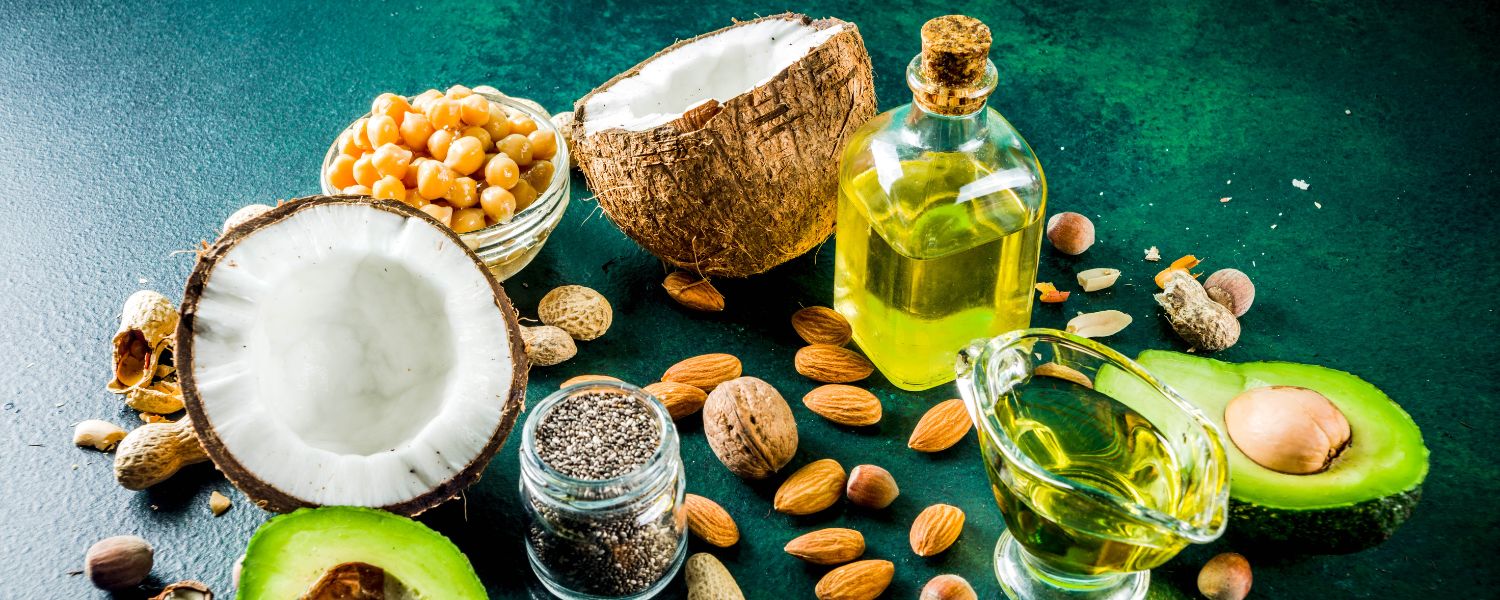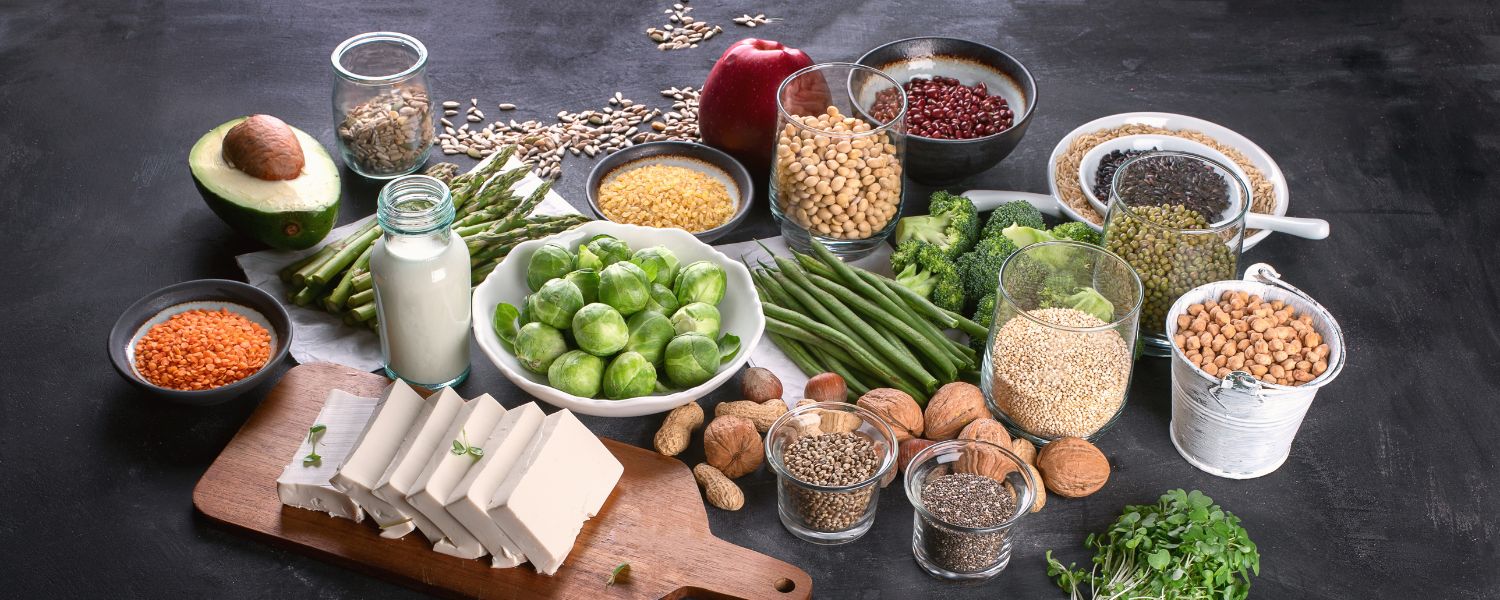Yoga is a holistic practice encompassing physical postures, breath control, meditation, and ethical principles. It is often associated with a lifestyle emphasizing mindfulness, balance, and compassion for all living beings. As a result, many individuals practicing yoga follow a vegan diet, excluding all animal products. Although a vegan diet offers several health advantages and resonates with the tenets of yoga, some practitioners may harbor concerns about ensuring sufficient protein intake. Within this article, we shall delve into the significance of protein within a yogi’s dietary regimen and delve into a myriad of vegan protein sources that can assist yogis in upholding.
The Importance of Protein in a Yogi’s Diet
Protein, a vital macronutrient, holds significant importance in numerous bodily processes, encompassing muscle healing and development, bolstering the immune system, and facilitating the creation of enzymes and hormones. For yogis, protein is especially important for the following reasons:
Muscle Recovery and Growth
Yoga involves a combination of static and dynamic postures that engage different muscle groups. Regular yoga practice can result in increased muscle strength and endurance. To support muscle recovery and growth, an adequate protein intake is necessary. Protein supplies the essential components, known as amino acids, required for the mending and construction of muscle tissue.
Sustained Energy
Yoga sessions can be physically demanding, requiring mental focus and physical stamina. Consuming protein-rich foods can provide sustained energy throughout the practice. Unlike simple carbohydrates, protein takes longer to digest and can keep you full and energized during practice.
Overall Well-being
Yoga extends beyond mere physical postures; it encompasses the holistic well-being of an individual. Protein plays a role in maintaining a balanced mood, cognitive function, and overall mental health. Adequate protein intake can contribute to a clear mind and emotional stability, essential aspects of yoga practice.
Maintaining a Balanced Diet
A balanced diet is a foundational aspect of yoga. Ensuring adequate protein intake is part of maintaining this balance.A diet which is deficient in protein can lead to nutritional imbalances and possible health concerns, which may hinder your progress in yoga.
How Much Protein Do Yogis Need?
The optimal daily protein requirement varies depending on factors like age, gender, physical activity level, and overall health. Typically, it is recommended that adults Protein supplement approximately 0.8 grams/kilogram of their body weight daily. However, those who engage in regular physical activity, including yoga, may require slightly more protein to support muscle repair and growth. Active yogis may find it more suitable to aim for a protein intake ranging from 1.2 to 2.2 grams/kilogram of body weight per day. This range allows for individual variations and preferences within a vegan diet.
Vegan Protein Sources for Yogis
Maintaining a vegan diet while meeting your protein needs as a yogi is feasible with some knowledge and planning. Here are some excellent vegan protein sources to include in your diet Elevate your yoga practice with a guide on vegan protein sources, ensuring yogis maintain optimal nutrition while going plant-based. Boost Your Yoga Practice.
1. Legumes: Legumes are a staple in a vegan diet. They abound in protein, fiber, and crucial nutrients. Common legumes include lentils, chickpeas, black beans, and peas. Incorporate them into soups, stews, salads, or make delicious hummus and falafel.
2. Tofu and Tempeh: Tofu and tempeh are soy-based products that are protein-packed and versatile. Tofu can be used in stir-fries, smoothies, or even scrambled as a breakfast option. With its nutty flavor, Tempeh is excellent for grilling, marinating, or slicing into sandwiches.
3. Seitan: Seitan, often called “wheat meat,” is made from gluten protein. It’s a high-protein, low-fat food that can be used in various savory dishes like stir-fries, sandwiches, and kebabs.
4. Nuts and Seeds: Nuts and seeds are outstanding sources of protein and healthy fats. Among them, almonds, peanuts, chia seeds, and hemp seeds stand out for their notably high protein content. Sprinkle them on your morning smoothie bowl, or enjoy them as a snack.
5. Quinoa: Quinoa serves as a comprehensive protein source, encompassing all the essential amino acids. It’s a versatile grain used as a base for salads, bowls, or a side dish.
6. Plant-Based Protein Powders: Plant-based protein powders, such as pea, rice, hemp, and soy protein, can be added to smoothies or recipes to boost protein content. They are convenient options for busy yogis on the go.
7. Nutritional Yeast: Nutritional yeast is a vegan staple known for its cheesy flavor. It’s a good source of protein and can be sprinkled on pasta popcorn or used in homemade vegan cheese sauces.
8. Edamame: Edamame are young soybeans and are a great source of protein and fiber. They can be steamed and lightly salted as a snack or added to salads and stir-fries.
9. Leafy Greens: Although leafy greens like spinach, kale, and collard greens aren’t as dense in protein as some other sources, they do contain a moderate amount of protein and are abundant in essential nutrients. Include them in your diet for their overall health benefits.
10. Vegan Yogurt and Milk Alternatives: Many dairy-free yogurt and milk alternatives are fortified with extra protein. Look for products made from soy, almond, or pea protein for a protein boost in your morning routine.
11. Vegan Meat Alternatives: Vegan meat alternatives, such as veggie burgers, sausages, and meatless crumbles, are often made from soy, seitan, or legumes and can be rich protein sources. Use them in place of meat in your favorite recipes.
12. Spirulina and Chlorella: These green superfoods are highly nutritious and contain a good amount of protein. They can be added to smoothies or taken as supplements.
13. Vegan Protein Bars: A diverse range of vegan protein bars can be found in the marketplace. These can be convenient snacks to carry with you for a quick protein boost after your yoga session.
Tips for Ensuring Adequate Protein Intake as a Vegan Yogi
1. Plan Your Meals: Take some time each week to plan your meals and snacks. This will help ensure that you incorporate a variety of protein sources into your diet.
2. Combine Protein Sources: Combining different protein sources can help create a complete amino acid profile. For example, pairing rice, beans, or tofu with quinoa can provide a more balanced protein intake.
3. Pay Attention to Portions: Be mindful of portion sizes to meet your protein goals. Utilize measuring cups or a food scale if required, particularly when you’re closely monitoring your protein intake.
4. Read Labels: Check the nutrition labels for protein content when purchasing packaged foods. Choose products that are higher in protein to meet your daily needs.
5. Consult a Registered Dietitian: If you find yourself with particular dietary questions or are uncertain about your protein intake, it’s advisable to seek advice from a registered dietitian who specializes in vegan nutrition. They can provide personalized guidance.
7. Stay Hydrated: Proper hydration is essential for digestion and nutrient absorption. Ensure you drink enough daily water to support your overall health and well-being. Explore vegan protein sources to ensure a balanced diet for yogis and discover delicious plant-based morning meals for a healthy start to your day.
Conclusion
Yoga & Health Expo Foundation Maintaining a vegan diet as a yogi is compatible with achieving optimal protein intake. By incorporating various vegan protein sources into your diet and paying attention to your individual needs, you can ensure that you receive the necessary nutrients to support your yoga practice and overall well-being.
Remember that a balanced diet is an integral part of yoga philosophy, and making conscious choices about your nutrition aligns with the principles of mindfulness and compassion that yoga teaches.





